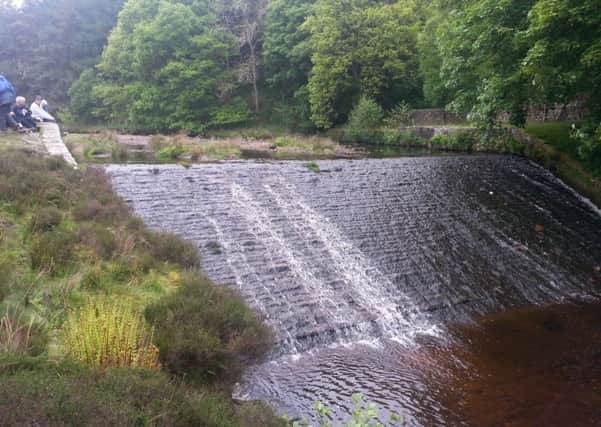Fish set to scale new heights across South Yorkshire


The first of the passes will be built at Langsett reservoir, near Stocksbridge and should bring new life to the upper reaches of the Little Don River. The fish passes will slow the water and create pools for the fish to jump into and rest in. Work will start this month and take around three months to complete.
Trout and salmon are genetically programmed to swim as far upstream as possible to breed, often to the exact place they were born. However, previous changes to rivers and streams, such as building reservoirs or weirs to manage water levels for mills, have created barriers which stop fish migration.
Advertisement
Hide AdAdvertisement
Hide AdContract partner ABCO Marine will start the project at the popular tourist destination in June at the top of Langsett Reservoir and complete it over the summer months.
At the same time, a further pass will be built at Jordan Dam, on the River Don, close to Blackburn Meadows Nature Reserve. In autumn the third one will be built on the River Don at Wharncliffe Side, Sheffield.
The investment into the new fish passes also contributes to the Don Catchment River Trusts ‘Salmon to Sheffield’ project, which aims to return salmon to Sheffield for the first time in 200 years.
Dr Ben Gillespie, Yorkshire Water’s Lead Environmental Advisor said: “This is a great opportunity to improve the biodiversity of Yorkshire’s rivers through an innovative partnership between ourselves, the Environment Agency, the Don Catchment Rivers Trust and our designers, Jeremy Benn Associates.
Advertisement
Hide AdAdvertisement
Hide Ad“We’re aware that Langsett is one of our most popular attractions with thousands of visitors each year and we’d like to assure recreational users of the site that we’ll keep any disruption to an absolute minimum.”
The fish passes at Langsett and Jordan Dam are being built over the summer to take advantage of lower flows in the river which will make the construction easier. It also means the fish passes will be complete in time for the time of year when brown trout usually start their journey upstream to breed.
This is the first phase of a much wider programme of work which will see a total of 14 new fish passes built across the region between now and 2020. Between 2015 and 2020 the water company is spending £15m on fish passes and biodiversity projects across the region out of a total investment of £3.8bn.